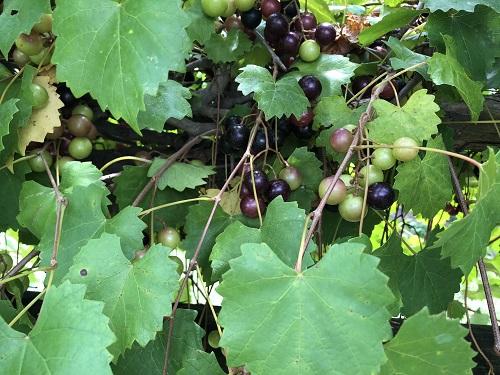
Credit: Ganpati B. Jagdale
Native to the Southeastern United States, muscadine grapes are a superfruit. With high levels of resveratrol, phenols and antioxidants, they are known to help fight cardiovascular disease and cancer-causing agents. Muscadines are also favored by small industries making juices, pies, jams, and wine. With combined sales of $5.2 million, these grapes are economically important in Georgia and North Carolina.
Muscadines are also known for being hearty grapes, with a tough skin that protects them from many fungal diseases. Bunch grapes are highly susceptible to damage from plant-parasitic nematodes (PPNs), which affect their health, quality, production, and maintenance. Now, thanks to a combined effort between scientists at the University of Georgia and North Carolina State University, we know that PPNs also affect muscadines.
Scientists conducted the first systematic survey of PPNs on muscadine grapes in August and October 2018, when they tested 19 vineyards in Georgia and North Carolina. They discovered seven PPNs (root-knot, ring, stunt, spiral, stubby-root, lesion, and dagger nematodes) associated with muscadine grapes in both states. They also found that the PPN communities differed between the two states, suggesting a possibility that vineyard management strategies may necessarily differ.
The next research step is to identify if, and to what extent, these nematodes negatively impact muscadine grape yield and if muscadine production would benefit from new management strategies. These nematodes may also play a significant role in grape replant disease and plant virus vectoring.
###
For more information, read “Occurrence and Distribution of Plant-Parasitic Nematodes on Muscadine Grapes in Georgia and North Carolina,” published in Plant Health Progress in September.
Media Contact
Ashley Bergman Carlin
[email protected]
651-994-3832
Related Journal Article
http://dx.




